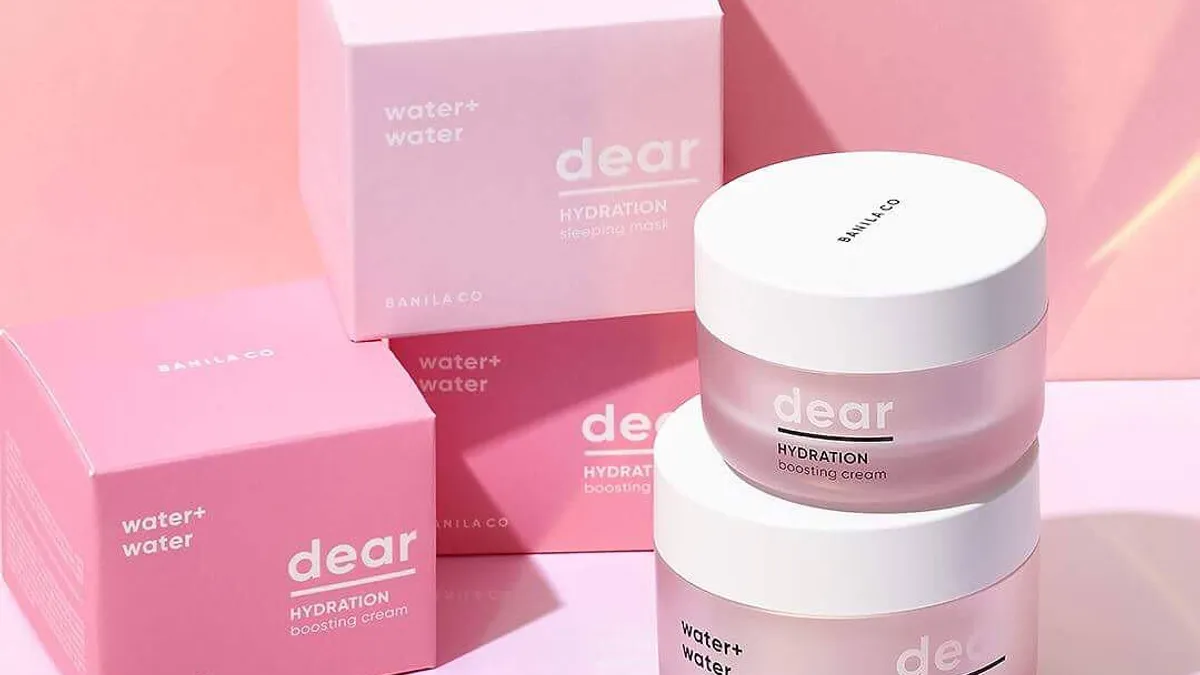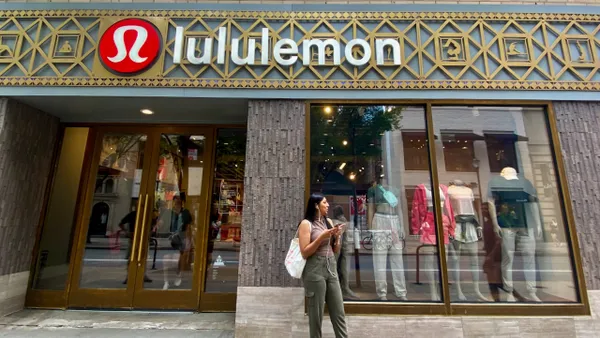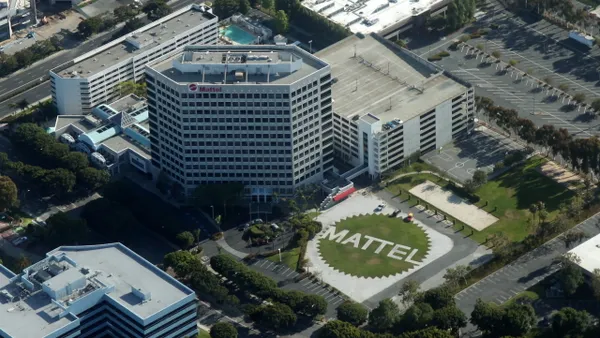Dive Brief:
-
Forever 21 has opened its first Riley Rose stores, a beauty sub-brand and retailer slated to open at 13 malls owned by GGP Inc, according to CNBC. The first opened at the Glendale Galleria mall in Los Angeles earlier this week. After the initial round of stores are opened (10 this year and three more in 2018), Forever21 reportedly will assess their performance and potentially open more locations next year.
-
The fast-fashion retailer already sells some beauty products, including makeup, skin care, hair care, nails, tools and K-Beauty (such as sheet masks) from other brands as well as its own private-label line.
-
The Los Angeles store features an open floor plan, color-coded displays, tech-enabled makeup mirrors, a "beauty bar" where shoppers can test products, beauty experts and plenty of merchandise, including beauty essentials, candy, small housewares, stationery and trendy accessories, according to a report from CNBC.
Dive Insight:
Unlike apparel sales, beauty sales are a bright spot in retail, so it's no wonder that Forever 21 is interested in creating a new beauty-focused entity. Likely the retailer is looking at the success of Ulta, which for several quarters has increased sales with the kinds of massive displays of beauty merchandise and beauty experts on hand that Riley Rose also now features.
That's not great for department stores, however, whose own beauty counters have been a fixture of their sales approach for decades. "Cosmetics are the last bastion of the department stores, and Ulta is accelerating its store growth," Nick Egelanian, retail analyst and president of retail development consultants SiteWorks International, told Retail Dive earlier this year. "Department stores are under full-scale assault, and this is just the beginning."
The entry of Riley Rose could challenge Ulta and Sephora, but all brick-and-mortar players also face rising online sales in the space. The category, long resistant to e-commerce, has seen a shift in attitudes, driven by demographics and influence via social media, according to a survey from A.T. Kearney.
The consulting firm has conducted the study every two years since 2012. In 2015, the industry that built its historic success on providing consumers with the in-store opportunity to touch, smell and sample products saw $6.2 billion, or almost 8% of its sales take place online — a full 1% more than in 2013, according to the study.














